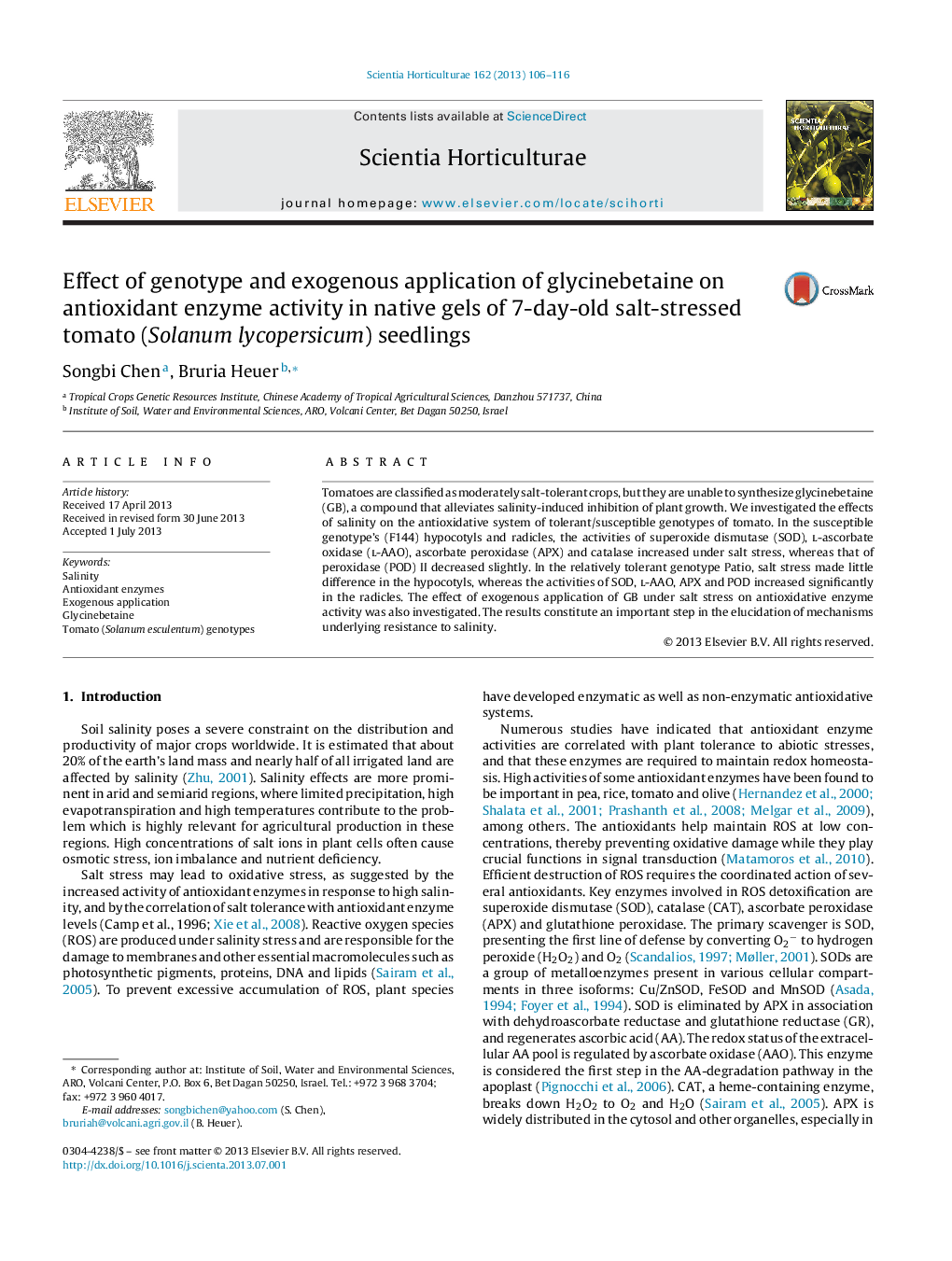| کد مقاله | کد نشریه | سال انتشار | مقاله انگلیسی | نسخه تمام متن |
|---|---|---|---|---|
| 6407275 | 1628836 | 2013 | 11 صفحه PDF | دانلود رایگان |

- The contribution of oxidative stress tolerance to salt stress was studied.
- The level of O2â radicals depends on the fluctuation of the enzymatic antioxidants.
- Antioxidant enzymes in susceptible genotype are more active than in tolerant ones.
- Exogenous GB application may enhance the tomato tolerance to salt stress.
Tomatoes are classified as moderately salt-tolerant crops, but they are unable to synthesize glycinebetaine (GB), a compound that alleviates salinity-induced inhibition of plant growth. We investigated the effects of salinity on the antioxidative system of tolerant/susceptible genotypes of tomato. In the susceptible genotype's (F144) hypocotyls and radicles, the activities of superoxide dismutase (SOD), l-ascorbate oxidase (l-AAO), ascorbate peroxidase (APX) and catalase increased under salt stress, whereas that of peroxidase (POD) II decreased slightly. In the relatively tolerant genotype Patio, salt stress made little difference in the hypocotyls, whereas the activities of SOD, l-AAO, APX and POD increased significantly in the radicles. The effect of exogenous application of GB under salt stress on antioxidative enzyme activity was also investigated. The results constitute an important step in the elucidation of mechanisms underlying resistance to salinity.
Journal: Scientia Horticulturae - Volume 162, 23 October 2013, Pages 106-116